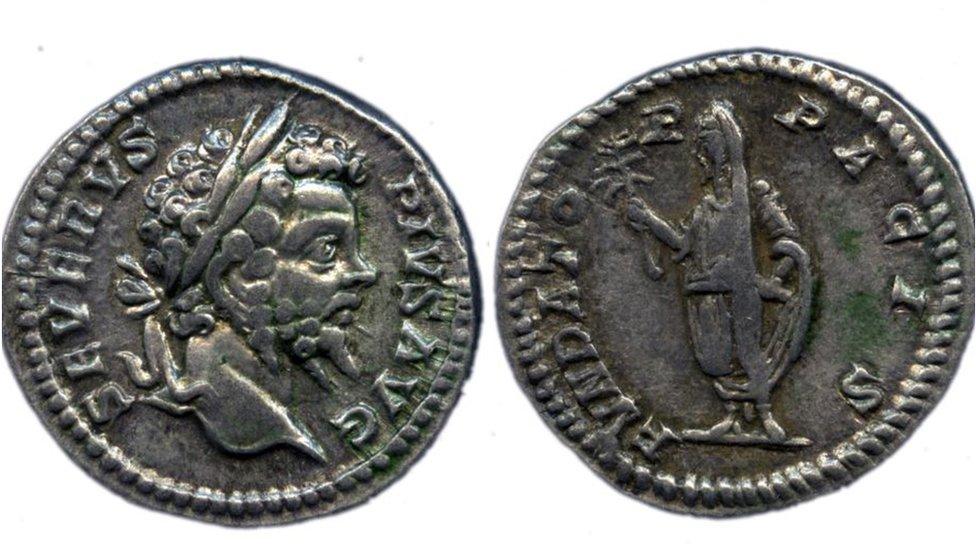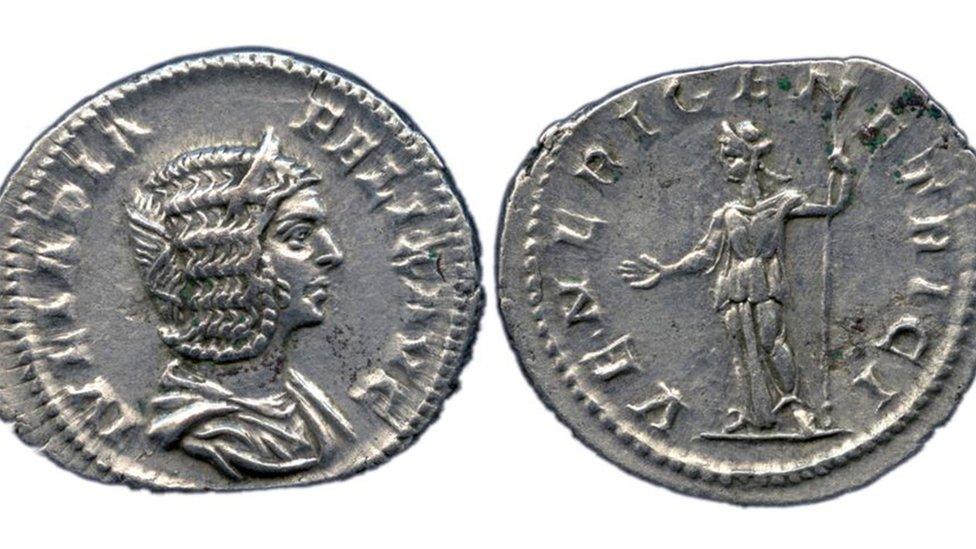Hoard of Roman silver coins bought by council
- Published

Septimius Severus was Roman emperor from 193 to 211 AD
A hoard of more than 1,000 Roman silver coins found by a metal detectorist in a village near Doncaster has been bought by the city council.
The hoard, which has been declared treasure, is believed to be one of the largest discovered in Yorkshire.
Discovered in Norton in 2018 it includes fragments of the pottery vessel the coins were buried in
It comprises coins from 18 Roman Emperors, the earliest dating back to 32BC depicts Mark Antony.
Within the 1,056-strong Norton Hoard are coins from the rule of Hadrian, the architect behind Hadrian's Wall which divided Roman Britain from Scotland, and Nero, infamous for "fiddling while Rome burned".
The treasure also includes coins of Septimius Severus and his wife Julia Domna, a North African imperial couple who famously set up their imperial residence in York while Severus campaigned in Scotland.

Julia Domna was Severus's second wife
Peter Robinson, collections and exhibitions officer at Heritage Doncaster, believes it is likely the coins were buried some time in late AD230.
However, the reason they were buried remains a mystery.
The hoard was found in what would have been a rural farming landscape in the Roman period, far from any of the major Roman towns like Doncaster or Pontefract. The nearest Roman city would have been York, 28 miles away.
The Mayor of Doncaster, Ros Jones, said: "What an incredible find. This hoard of Roman coins provides a glimpse into the history of Roman Britain from 1,800 years ago.
"It allows us to imagine how such a valuable asset came to be buried in the first place and now this treasure will be a part of Doncaster's history forever."
Professor Michael Lewis, Head of Portable Antiquities & Treasure at the British Museum, said: "The British Museum is very pleased that this important find has been acquired by Doncaster Museum for public display.
"The Portable Antiquities Scheme is an essential part of the Museum's work across the country, recording finds made by the public and ensuring those that are Treasure are acquired by museums for the public to learn about and enjoy."
According to Heritage Doncaster, the purchase was made possible with support from the Arts Council England, The Headley Museums Archaeological Acquisitions Fund and the Friends of Doncaster Museums, as well as a private bequest.

Follow BBC Yorkshire on Facebook, external, Twitter, external and Instagram, external. Send your story ideas to yorkslincs.news@bbc.co.uk, external.